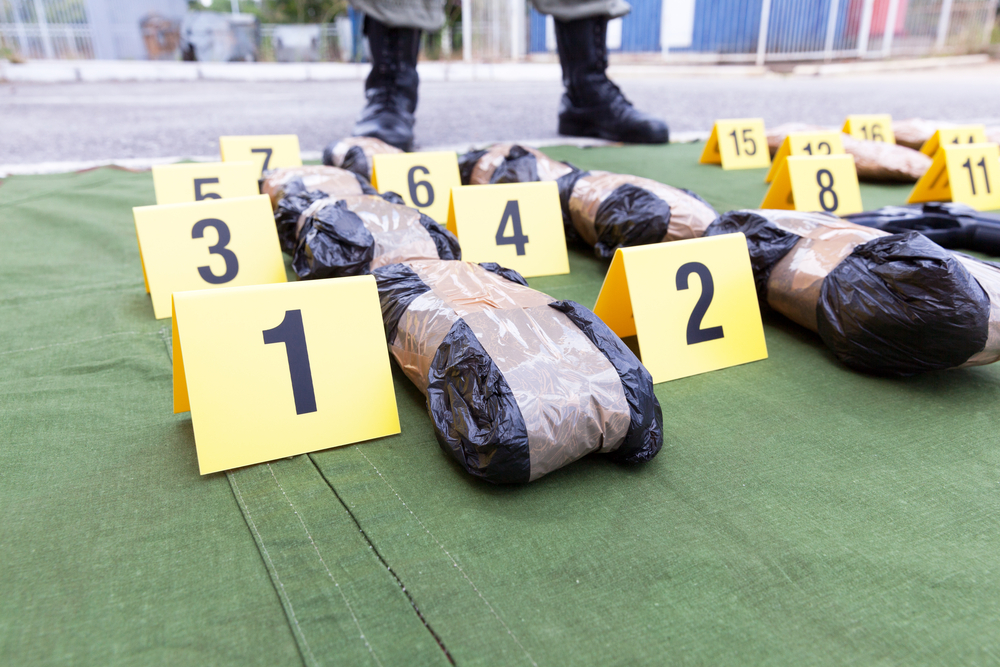A former senior policeman has urged officers across the world to stop conducting searches and executing raids for drugs, describing evidence that more people die from overdoses after seizures of illegal drugs nearby as a “wake up call”.
A recent study, published in the American Journal of Public Health (AJPH), is the first empirical evidence of an alarming connection between drug seizures and adjacent overdoses, which raises serious questions around the public health dangers of taking drugs off the market as a “harm reduction” strategy.
It vindicates campaigners who have long warned that drug raids put the people who use them at greater risk–while incentivising the supply of ever more potent opiates, such as fentanyl. These results have pressured police forces to rethink the punitive approaches to drug control that are still the norm worldwide – despite the potential risk to human life.
A first-of-its-kind study
“Supply-side enforcement interventions and drug policies should be further explored to determine whether they exacerbate an ongoing overdose epidemic and negatively affect the nation’s life expectancy,” the study, funded by the Centers for Disease Control and Prevention (CDC), and co-written by a former Vermont police chief, concluded.
Within seven days of opioid-related seizures in Marion County, Indiana, during the two-year study period, the observed number of fatal overdoses rose twofold within a 500 metre radius of the raid. The number of naloxone administrations recorded following an opioid bust was also “significantly higher”.
This may be due to people who use opioids going into withdrawal after being cut off from their supply – putting them at greater risk of overdose once they find a new seller that is supplying drugs of unknown potency. This can take people over their tolerance and cause a potentially fatal overdose if there is no one around to administer naloxone.
“Persons with opioid use disorder who lose their supply will experience both diminishing tolerance and withdrawal,” the study reported, “whereby even the anticipation of painful symptoms may lead them to seek a new supply while discounting risks that stem from the differences in potency inherent in an illicit opioid market; this results in unknown tolerance, uncertainty about a safe dose, and increased overdose risk.”
There were more than 2,000 opioid-related seizures during the 24 months over 2020-21, and 13,761 overdoses, of which 1,171 were fatal, the study reported.

Police responses
Echoing the study’s findings, some police forces in the US and the UK are now pursuing policies amounting to de facto decriminalisation for certain drug offences, recognising the futility of enforcing the law to the letter.
Tom Synan, police department chief in Newtown, Ohio, told TalkingDrugs that he and certain colleagues recognise the correlation between arrests for drug trafficking and increased overdoses and deaths. “Making a drug seizure may have the potential to cause deaths or more damage to the people using them,” he said.
This understanding underpins the work of Ohio’s Operation BRIDGE. This operation is a series of events that distribute food, harm reduction resources (like fentanyl test strips and naloxone) as well as health screenings and treatment referrals. These actions are run by local charities, who work alongside law enforcement to help their community. It can be an issue to have law enforcement conduct such community actions given that they are often responsible for the arrest of people who use or sell drugs; but there seems to be a recognition within the police force that drug-related problems will not be resolved through law enforcement.
Synan said that there are competing ideologies at play within police forces, and this is one reason why drug raids continue. “I can’t say that anyone I know is saying no to doing seizures, I will say they are changing tactics.”
“Law enforcement alone can’t and should not be the lead on the chronic social, medical, mental health conditions that we are often charged to intervene on,” Synan, who is also a Law Enforcement Action Partnership (LEAP) member, added. “We do not want to create unintentional consequences that cause more death, keep one in the cycle of addiction and impact the people and community we serve.”
He believes the changes in local policy within Ohio have seen results. “For the first time in close to eight years, we’ve seen our first reduction in overdose deaths of 16%,” said Synan. In 2023, they expect there to have been 100 less deaths than the previous year.
Police drug seizures must stop
But for some advocates, nothing short of root and branch reform will do. “From a policing perspective, the first duty of the police is the preservation of life; so this study really means that police should stop doing this,” said former Detective Sergeant and undercover cop Neil Woods, co-author of Drug Wars: The Terrifying Inside Story of Britain’s Drug Trade. “Police activity in the marketplace, arrests, raids and seizures increases violence and overdoses.”
The AJPH study “should be a wake up call for police leaders to stop” conducting searches and executing raids, Woods said. “Police should face up to the evidence before their own eyes. They know that there is no positive impact from these raids. It’s actually killing people.”
Jason Kew, a former chief inspector who now works as a practice lead with the Center for Justice Innovation, said that drug busts can lead to a rush among competitors to fill the void – sometimes with more harmful, or synthetic, alternatives.
“People get used to their supplier,” he said. “There’s a risk that different potencies, untested different blends with synthetics, will replace the previous supply and create far more harm.”
Busts and arrests can also lead to increased violence, as gangs jockey for position amid a sudden power vacuum, he added. “Disrupting organised crime groups leads to deadly competition for the available turf.”
Looking to the future
The study’s authors were unable to prove a causal link between police disruption of drug markets and overdose, but previous research has documented this association. However, a causal link should not be needed when both law enforcement and people who use drugs have confirmed that this deadly connection exists.
Nevertheless, the mere existence of a CDC “Opioid Rapid Response Program”, which explicitly aims to mitigate “drug overdose risk among patients impacted by law enforcement actions that disrupt access to prescription opioids” is a clear acknowledgement by a federal agency of the scale of the issue.
While it is commendable that police forces increasingly acknowledge how their activities can be counter-productive to keeping communities safe, it’s unclear to what degree this will change their actions in practice. Some police forces have dialled down their war on drugs, to various degrees; diversion schemes have been explored worldwide as alternatives to immediate punishment. However, they fail to appreciate the protective effect that drug sellers with a stable supply of drugs can create for people who use drugs.
Only through a radical, evidence-based overhaul of the drug laws and the role of the police in society can a safe supply of drugs for dependent people be ensured, with the ushering in of a humane and forward-thinking drug policy.


